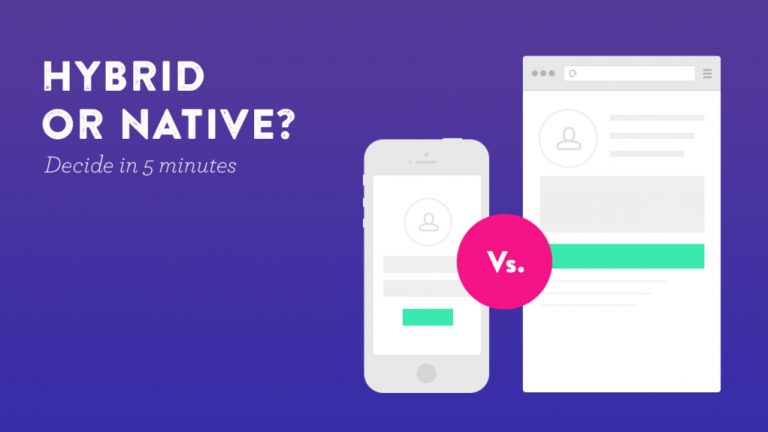It is difficult for developers to choose between Native and Hybrid App development because of the availability of smartphones with effective-costs. And customers are not always concerned about the technology that powers the app.
The customers are the most important aspects of app development that need to be considered for choosing Native or Hybrid. Most of the users are unaware of the fact that what it takes to make the app work.
The growing markets of smartphones make the organizations choose the adopting ways to incorporate the mobile app to their business flow for growing the market. This creates the situation for Hybrid development and Native development to choose between two.
Now there are some factors that will help you to understand the need for Hybrid or Native. They are
- Does the app need to use specific features for smartphones?
- How fast the app needs to be float in the market?
- Will it have a budget for cost-effective apps?
- Are the objectives of the app appropriate enough?
- Are the features of the app satisfactory?
- What will be the frequency for updating the app?
- Will the app have priority for cross-platform compatibility or for UI/UX.
For providing answers to the above questions, we have to focus on the subject of discussion.
Hybrid apps development
Hybrid apps are a program that is built using HTML 5, CSS and JavaScript, wrapped in a native container that allows the app to be cross-platform compatible and make it beneficial with 100% code reuse.
As the user navigates throughout the application, the native container loads quickly maximum information on the page. Hybrid apps are run within the internal browser of that specific platform.
Now, the features of a typical hybrid app are the following:
- Support cross-platform UI/UX
- Multiple mobile platforms managed by a single code.
- Easy and simple maintainability.
- Device file system integration.
- Development of the app is less expensive.
- Maintenance is also cost-effective.
- Development of the app takes less time.
Native apps development
Native apps are programs that are built using specific native tool for devices with a specific platform (Android or iOS or Windows). This includes a specific set of programming languages and tools for every platform. These OS-specific tools give the advantage of OS features and other software tools to the apps. Phones functions like camera, gallery, contact list, etc. can be accessed by this app.
Native apps give the best performance because they are compiled into machine code. In other words, a Native app gives you your expectations in reality.
Though it is not understandable by everyone, the native development is easy and there is a large number of resources available.
And, the main features of the native app are
- Better experience to the user.
- Fast performance but simple.
- Native features can be used.
- Both online & offline transaction supported.
- Highly reliable.
To make a native app work into other platforms, versions duplicate of the app is required by the organizations as these apps can be built specifically for a particular OS.
As a comparison with Native app, Hybrid apps take less cost and time to develop. The native app needs an app developer for each platform, whereas Hybrid App maintains just a single code for all platforms. But, it does not mean that Hybrid apps have benefits over Native apps. Native apps have their own benefits.
Tech Enthusiast and UI Developer at Openweb Solutions






